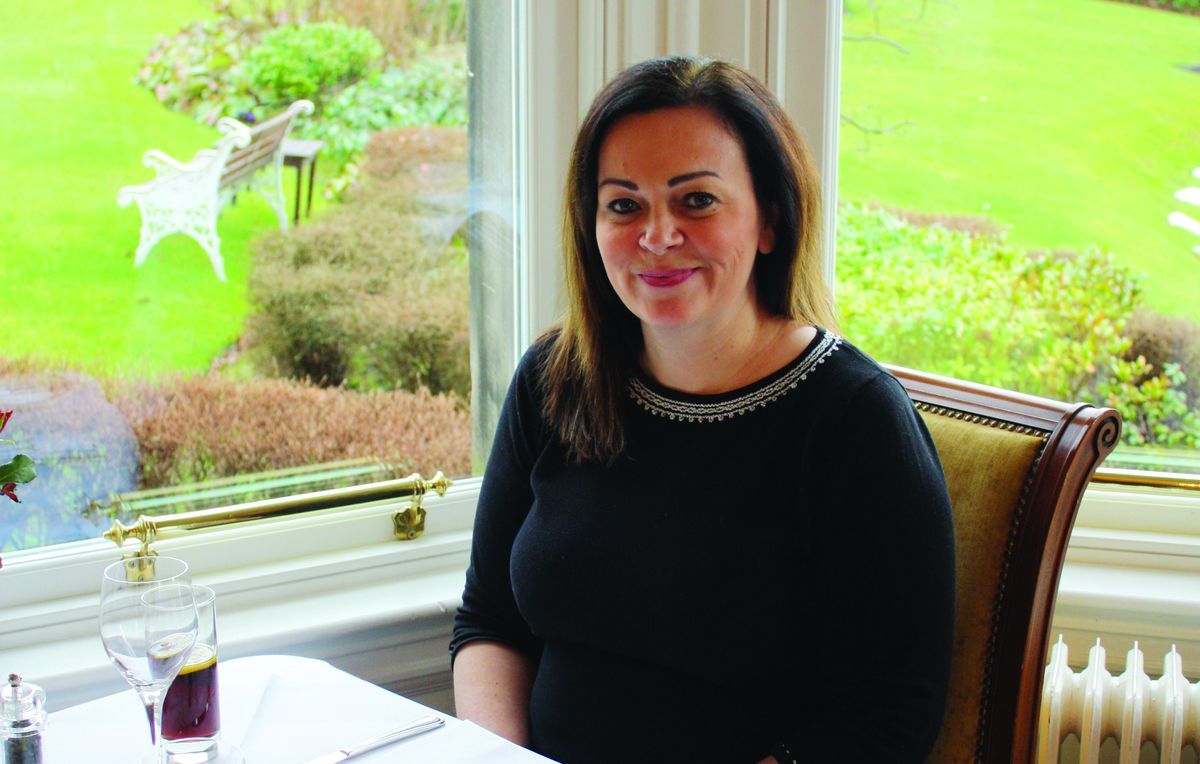Every month Katy Gordon speaks to Courier Country business people to learn what makes them tick. This month, she met Lorna Brown of Caritas Legal at Garvock House Hotel in Dunfermline.
My first impression of Lorna Brown, the owner and founder of Caritas Legal, was that she was the least “lawyerly”-looking lawyer I have ever met, which I told her when we sat down to lunch. It turns out that’s part of Lorna’s business strategy.
“I’ve always hated the corporate stereotype of law and I know from my own experience that a lot of clients are intimidated by it,” Lorna explained as we tucked into our lunch. She had opted for the baked hake fillet, which came with a herb crust and shellfish and leek ragout.
I had the spinach and ricotta tortellini in a tomato and basil sauce, topped with affilla cress and parmesan salad.

The establishment of Caritas Legal came about through Lorna’s own experiences as a carer for her mum.
“I set up the business after my mum got dementia – through that limited exposure as a carer I realised that I, and many others, didn’t know about the legal side of care and what needs to be put in place to help the person being cared for.”
Lorna’s mum passed away at the beginning of 2011, which she says was the driving force to hand in her notice and go out on her own.
“When I first started I had four kids – I now have five – and I was working at home on my laptop, often until midnight. Three months later, I moved into my first office and during that first year, I learned a lot about running a business.”

Specialising in future planning (including estate planning, Wills, Power of Attorney) and care means that Lorna has to put people at the heart of the Caritas ethos.
“We offer every client a home visit – I was recently in Aberfeldy to get papers signed – which really helps me get to know my clients and their background, and it also helps put them at ease, because often people are nervous to come into a lawyer’s office.
“That is especially important if we are setting up a Power of Attorney.”
Because of the company’s focus, Lorna does admit that her job is a “lot more than just the legal side”.
“It can be quite difficult because you do hear a lot of sad stories, but you do have the clients that you click with and there are some happy endings and silver linings that make up for it.
Since setting up in 2011, Lorna’s business has continued to grow. She now employs a paralegal and secretary, which allows her to dedicate most afternoons to seeing new clients (either in the office or at their home).
Lorna also set up Caritas Bloom, a trust management company which helps people affected by dementia, learning difficulties and brain injuries manage their assets and money.
She also recently worked with a business coach, which she credits for helping her focus and work more efficiently.
“I also learned what I didn’t want,” Lorna said as she tucked into her chocolate mousse with honeycomb pieces and creme anglaise, “because we were looking at expansion and I could see Caritas potentially changing in a way that I wasn’t happy with. People like the fact that we are small and it means that I know my clients.
“So I took the bits from the coaching that worked for me.”
One of those elements, she explained, is eating frogs.
“We all have the jobs that we put off doing, our ‘frogs’. So every day, we have a number of frogs to eat.”
Aside from her client work, Lorna dedicates time in her day to speak to charities and organisations about the legal side of caring for someone, which she says she does to help people understand what they need to know.
“For example, people think that if you pass your home onto a child seven years before you go into care it prevents the local authority from using it when accessing care costs, but that’s not the case. The seven year rule only applies to inheritance tax.”
As we wrapped up our lunch, I asked Lorna whether or not going into business for herself was worth it. She gave me a big smile.
“It was the best thing I ever did.”
